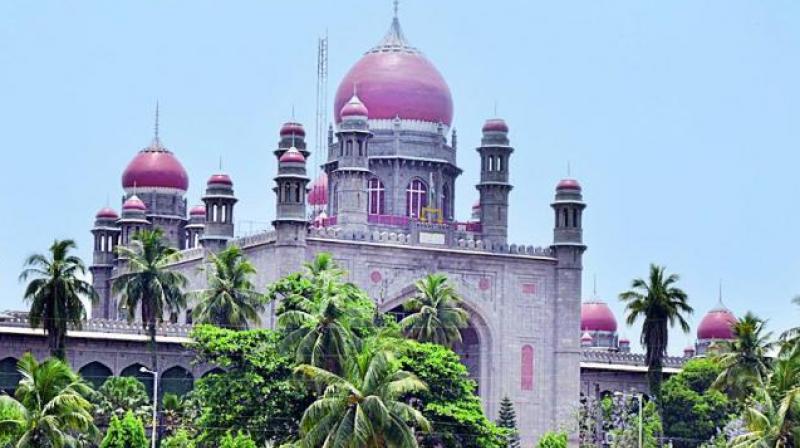HC questions tribunals judging 16,000 land cases in 20 days

Hyderabad: In a case relating to special tribunals set up by the Telangana government, in which collectors and additional collectors have been instructed by the government to dispose over 16,000 revenue cases pertaining to land ownership issues within twenty days, the Telangana High Court on Thursday wondered how would it be possible to a tribunal to adjudicate on so many pending cases solved in such a short time
A Division Bench comprising Chief Justice Hima Kohli and Justice B. Vijaysen Reddy was so curious on how it was possible for special tribunals constituted to try pending revenue cases, exercising a judicial function to adjudicate on property rights of citizens and make judgments within a fortnight when the same revenue cases have been pending before the same revenue authorities for years together.
Chief Justice Kohli, said sarcastically, “if it can be proved how these tribunals can deal with thousands of cases in such a short time, then the judiciary of India would take a leaf from the book of Telangana, in disposing of pending cases”.
The bench was dealing with a PIL filed by N. Srinivasa Rao, a practicing advocate from Bhadrachalam, as an aggrieved party to a decision of the specially-constituted tribunals, in “not allowing parties or advocates to defend” in cases pending before the tribunals.
He argued that it was a clear violation of the principle of natural justice, where every interested party had to be given a chance to put their contentions and be heard by decision-makers.
Kovutturi Pavan Kumar, counsel for the petitioner, said it was a violation of Article 300-A. He said cases were being disposed of in a hurry.
Special tribunals have been constituted under the Telangana Rights in Lands and Pattadar Passbooks Act, after abolishing all revenue courts. These tribunals were constituted to try around 16,000 cases, which were pending before those abolished revenues courts.
Collectors and additional collectors, as members of these tribunals, decide cases. But, reportedly, there were “instructions” to them to “dispose of the cases within twenty days”, and that no hearings could be conducted or no advocate or party be allowed to submit contentions in these cases.
When this aspect was questioned by the High Court on Thursday, and the state was asked to explain the reason for the undue haste, Advocate General B.S. Prasad sought a “little time to get instructions from the government”, on whether it had given such directions or not.
With that, the Court gave four days’ time to him and adjourned the case till March 2.

